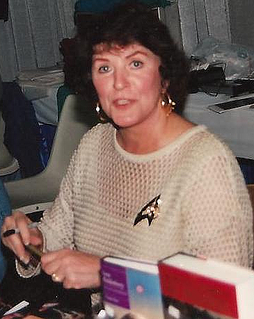A Quote by Duncan J. Watts
What appear to us to be causal explanations are in fact just stories—descriptions of what happened that tell us little, if anything, about the mechanisms at work.
Quote Topics
Related Quotes
What does it matter, if we tell the same old stories? ...Stories tell us who we are. What we’re capable of. When we go out looking for stories we are, I think, in many ways going in search of ourselves, trying to find understanding of our lives, and the people around us. Stories, and language tell us what’s important.
Stories? We all spend our lives telling them, about this, about that, about people … But some? Some stories are so good we wish they’d never end. They’re so gripping that we’ll go without sleep just to see a little bit more. Some stories bring us laughter and sometimes they bring us tears … but isn’t that what a great story does? Makes you feel? Stories that are so powerful … they really are with us forever.
We all want explanations for why we behave as we do and for the ways the world around us functions. Even when our feeble explanations have little to do with reality. We’re storytelling creatures by nature, and we tell ourselves story after story until we come up with an explanation that we like and that sounds reasonable enough to believe. And when the story portrays us in a more glowing and positive light, so much the better.
Each of us is comprised of stories, stories not only about ourselves but stories about ancestors we never knew and people we've never met. We have stories we love to tell and stories we have never told anyone. The extent to which others know us is determined by the stories we choose to share. We extend a deep trust to someone when we say, "I'm going to tell you something I've never told anyone." Sharing stories creates trust because through stories we come to a recognition of how much we have in common.
The Anansi stories were in my life because they're not just 'Br'er Rabbit and the Tar-Baby in the Briar Patch,' they're stories from Jamaica and Africa that my mum used to tell us when we were kids. So I learned about Anansi being not just a spider, but also a weird god-like figure since I was little.
As a little girl, I didn't like stories about little girls. I liked stories about dragons and beasts and princes and princesses and fear and terror and the Four Musketeers and almost anything other than nice little girls making moral decisions about whether to tell the teacher about what the other little girl did or did not do.
































